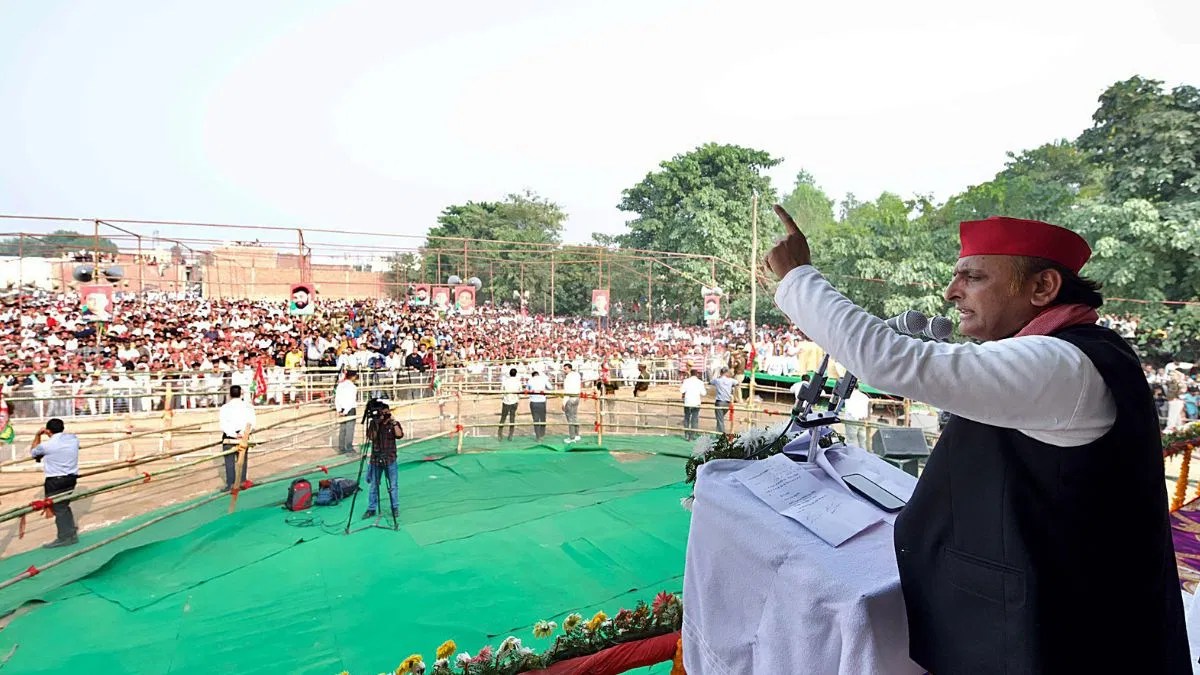TADA, POTA & UAPA—how Congress, BJP-led govts walked nationwide security-civil liberties tightrope – ThePrint – Choose
On the time, the Congress-led Opposition staged a walkout, with then Congress president and Chief of Opposition Sonia Gandhi opposing the invoice for its “anti-democratic” provisions.
Shah then alleged that in 2004, the Congress authorities “weakened” India’s combat in opposition to terrorism by repealing POTA. “POTA was in opposition to the terrorists, however the Opposition wished to avoid wasting the terrorists by stopping POTA for vote financial institution politics,” he stated.
Anti-terror legal guidelines in India have traditionally been launched in response to terrorist assaults.
POTA was India’s response to the 1999 IC-814 hijack and the phobia assault on Parliament in December 2001. The Illegal Actions (Prevention) Act, 1967, (UAPA) was amended in 2004 and once more in 2008, the latter in response to the 26/11 Mumbai terror assault.
The Congress remained against POTA and its repeal was the occasion’s distinguished electoral promise within the 2004 normal election. The legislation has typically drawn criticism for its alleged misuse and has acquired the doubtful label of being a “draconian” piece of laws.
Nonetheless, as a substitute, the UPA authorities solely introduced again the anti-terror legislation in a extra stringent modification to the UAPA in 2004 and 2008.
“The restrictions on liberty, and particularly the grant of bail, had been first launched in TADA, laws introduced by the Congress authorities. They had been changed by POTA solely to be repealed and metamorphose into the UAPA by the amendments, which elevated the scope of the time period ‘terrorism’,” senior advocate Saurabh Kirpal informed ThePrint.
“It’s a case of plus ça change, plus c’est la même selected, the extra issues change, the extra they continue to be the identical,” he added.
What was POTA, how was POTA repealed, and what are the similarities and variations between POTA and the Illegal Exercise (Prevention) Act, which was amended in 2004 and 2008 to perform as an anti-terror laws? ThePrint explains.
Additionally Learn: In Delhi HC’s denial of bail to 7 ‘energetic LeT members’, a studying of how UAPA sees furthering of terror
POTA v/s UAPA
Analysts have typically stated that a number of provisions of POTA discovered their solution to UAPA via subsequent amendments, even making the latter legislation stricter. The 2004 modification to UAPA largely adopted the definition of “terrorist act” from POTA.
Each POTA and UAPA 2004 punished any acts “with intent to threaten the unity, integrity, safety or sovereignty of India or to strike terror within the folks”.
Each legal guidelines centered on acts that trigger loss of life, damage, loss or injury or destruction of property, disruption of any provides or providers important to the lifetime of the neighborhood, and injury or destruction of any property in India or in another country.
In 2008, this definition was fine-tuned to incorporate any act that “overawes by way of prison pressure or the present of prison pressure or makes an attempt to take action or causes loss of life of any public functionary or makes an attempt to trigger loss of life of any public functionary”.
Nonetheless, remnants of the definition of a “terrorist act” underneath POTA stay even within the present definition.
Beneath Part 53 of POTA, the court docket might direct an accused to provide samples of handwriting, fingerprints, footprints, images, blood, saliva, semen, hair and voice on the request of a police officer. But when the accused refused to provide such samples, the court docket might draw an “opposed inference” in opposition to the accused.
Beneath Part 43E of UAPA, as launched via the 2008 modification, such a refusal wouldn’t simply result in an opposed inference, however a presumption that the accused had dedicated the offence, until the opposite was proven. This reversal of burden additionally makes the UAPA extra stringent in comparison with POTA.
Kirpal stated that not solely UAPA, however even the stringent provisions of the Prevention of Cash Laundering Act 2002 had been launched by the Congress authorities. He added that offences underneath the Customs and Excise Act had been made non-bailable by the UPA after the Supreme Courtroom had dominated in any other case.
“The examples abound. The tendency of the state is to build up energy and is a function of all governments, regardless of which political occasion they belong to,” he added.
A extra stringent bail regime
Like POTA, UAPA additionally permits prolonged detention of an accused for as much as 180 days, with out submitting a chargesheet in opposition to them. Each legal guidelines additionally don’t enable anticipatory bail.
Stringent bail situations had been added to the UAPA via the amendments in 2008.
Part 43D(5) of UAPA makes bail nearly unattainable. It says that no one accused of terror offences underneath the act will likely be launched on bail, if, after inspecting the case diary and police report, the court docket “is of the opinion that there are affordable grounds for believing that the accusation in opposition to such individual is prima facie true”.
Compared, POTA stated that if the general public prosecutor opposes the grant of bail to an accused, the court docket might grant bail provided that it was happy that there have been grounds for believing the accused was “not responsible”.
The Supreme Courtroom had earlier interpreted the bail provisions underneath POTA to permit for conditional bail. It held that courts might grant bail after listening to the general public prosecutor and figuring out that there have been grounds to consider the accused was not responsible, however just for as much as a yr of detention.
Nonetheless, after an accused had been in detention for a yr, extraordinary prison jurisprudence on bail would apply and the extra necessities had been now not vital.
UAPA’s bail provisions are, due to this fact, thought of considerably extra stringent than POTA.
One large distinction between the 2 legal guidelines is that whereas confessions to the police had been admissible underneath POTA, they continue to be inadmissible underneath the UAPA.
Confessions made in police custody are normally inadmissible in court docket as a result of it’s presumed that each one such confessions made to law enforcement officials are coaxed out of the accused.
Beneath the extraordinary legislation of proof, as underneath UAPA, solely confessions made earlier than a Justice of the Peace are admissible as proof.
‘Complete authorized framework’
Consecutive amendments to UAPA have persistently made the legislation stricter.
Senior advocate Vikas Pahwa informed ThePrint that as a practitioner of prison legislation, he has noticed the legislative journey of India’s authorized response to terrorism carefully—from the Terrorist and Disruptive Actions (Prevention) Act, 1985 (TADA) to UAPA.
He pointed to key amendments made to UAPA over time, from introducing the definition of “terrorist act” in 2004 and incorporating provisions from the repealed POTA, to introducing stringent bail situations in 2008, and widening the definition of terrorist actions to incorporate threats to financial safety and prolonged provisions to cowl the financing and logistics of terrorism in 2013.
He stated that essentially the most “far-reaching” modification to UAPA got here in 2019, empowering the Nationwide Investigation Company (NIA) to analyze UAPA offences throughout the nation with out prior state consent.
“Moreover, it enabled the Central authorities to designate people, not simply organisations, as terrorists, marking a major coverage shift,” he added.
“Cumulatively, these amendments mirror a constant and decided strategy by successive governments to construct a complete authorized framework that may successfully deter and prosecute terrorism. The UAPA, because it stands immediately, is a sturdy and efficacious statute—outfitted with the instruments required for enforcement, whereas remaining topic to constitutional self-discipline and judicial scrutiny,” Pahwa informed ThePrint.
Nonetheless, he additionally asserted that it’s equally vital to make sure that the legislation is “utilized judiciously and sparingly, with a unbroken dedication to the constitutional ensures of honest trial and private liberty”.
“The fragile stability between nationwide safety and civil liberties should at all times be preserved in a democratic society ruled by the rule of legislation,” he stated.
How was POTA repealed
POTA supplied a definition of terrorist acts, allowed confessions made to the police to be admissible as proof, and prescribed enhanced punishments for terrorism. The legislation had an in-built expiry date. It was to stay in pressure just for three years and so was set to lapse in October 2004. Nonetheless, the legislation was repealed months earlier than this expiry date via an ordinance introduced by the newly elected UPA authorities.
In 2004, a Ministry of House Affairs launch stated that the UPA authorities, which got here into energy that yr, had been “involved with the way during which POTA has been misused”.
“Nonetheless, there will likely be no compromise within the combat in opposition to terrorism,” it asserted, mentioning that whereas the federal government had promulgated an ordinance to repeal POTA in 2004, one other ordinance was being promulgated to amend the Illegal Actions (Prevention) Act 1967, “for coping with the assorted sides of terrorism”.
Whereas UAPA had been in place since 1967, provisions associated to terrorist actions had been added to the legislation solely via an modification in 2004.
In 2003, then Deputy Prime Minister L.Ok. Advani introduced the formation of a evaluate committee to provide its findings and proposals on the functioning of the legislation, after noting issues concerning the legislation getting used in opposition to individuals who don’t fall underneath its ambit.
Congress MP Manish Tewari asserted throughout a parliamentary debate in 2019 that the allegations that POTA was repealed for vote-bank politics had “no fact”.
“An effort to rectify the Act had been began by the BJP itself. Then House Minister L.Ok. Advani had stated that POTA was being misused. After which a POTA evaluate committee was made … After it gave its suggestions the NDA authorities issued an ordinance to make its suggestions obligatory for the Centre and the states,” Tewari was quoted as saying.
This was in response to Shah’s allegations that POTA was repealed by the UPA authorities for “political functions”. The feedback had been made throughout a parliamentary debate on amendments to the Illegal Actions (Prevention) Act.
(Edited by Sugita Katyal)
Additionally Learn: Strict 14-day timeline ‘couched in obligatory language’: Key SC order on granting sanctions underneath UAPA
Source link
latest video
latest pick
news via inbox
Nulla turp dis cursus. Integer liberos euismod pretium faucibua






















